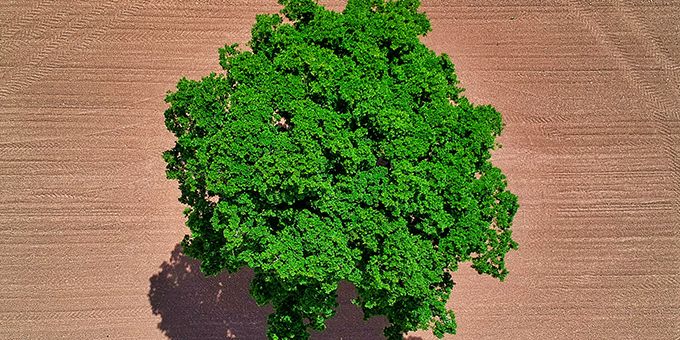The Hub will be the focal point for developing and testing new sustainable materials and bioplastics to tackle growing plastic pollution as well as investigating waste feedstock options within British agricultural operations.
 Developing Bioplastics in the Agricultural Industry
Developing Bioplastics in the Agricultural Industry

Article from | Teysha Technologies
Biopolymer innovator Teysha Technologies have joined the National Institute of Agricultural Botany (NIAB) to research, test and develop bioplastics for the agricultural industry in the UK. The opportunity will allow Teysha to expand as the start up further commercialises in the UK, utilising the Eastern Agritech Innovation Hub near Cambridge. The Hub will be the focal point for developing and testing new sustainable materials and bioplastics to tackle growing plastic pollution as well as investigating waste feedstock options within British agricultural operations.
The first innovation to be delivered from the new Teysha laboratory will be a series of new polyester composite materials. Their purpose will be to replace some products that are currently based on petrochemical plastics, as well as improve the biodegradability of existing bioplastics such as polylactic acid. Unlike other polymer manufacturing processes, the synthesis of Teysha’s materials generates zero chemical by-products for disposal. Its properties make it susceptible to microbial breakdown, a desirable benefit for applications like packaging.
Teysha’s new polyester composites show promise as plastic alternatives across industries like agriculture and horticulture. For example, British gardeners go through 500 million plastic plant pots a year that are either incinerated or sent to landfills. On average they take an estimated 450 years to degrade and in the process may release toxic additives, dyes and microplastics into the environment. To address this, Teysha is targeting the development of alternatives using polyester composites. The goal is to prototype alternative options that provide additional plant nourishment while also having the ability to either biodegrade or be composted.
“This opportunity to work with the NIAB will allow us to further develop innovative, sustainable materials that can replace harmful plastics in industries like agriculture, as well as examine waste feedstocks for our range of biopolymers.” Said Matthew Stone, Managing Director of Teysha Technologies. “Working with such an important UK institution will also accelerate commercialisation in the UK.”
Teysha Technologies was established to solve the problems surrounding the production and use of plastics. In partnership with Texas A&M University, Teysha have developed novel second generation bioplastics based on sugar polycarbonates. Now, Teysha is extending its commercial operations to the UK where it is establishing a laboratory facility and a relationship with the NIAB.
The NIAB Group is the UK’s fastest-growing crop science organisation, addressing the challenges of food security, climate change and sustainable development in agriculture. The group works with local and national businesses at the hub to carry out commercial scale pilot studies that aid the development of the agricultural and horticultural industries in the UK.
To find out more about Teysha Technologies and its research into tuneable biodegradable biopolymers, visit the Teysha Technologies website.
The content & opinions in this article are the author’s and do not necessarily represent the views of AgriTechTomorrow
Comments (0)
This post does not have any comments. Be the first to leave a comment below.
Featured Product

